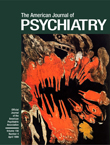Modern medicine is blessed by the contributions of improvements in nutrition, public health measures such as the provision of safe drinking water and soap, and advances in medical care, including the introduction of insulin, antibiotics, and hip replacement surgery. These have resulted, for those to whom these are available, in dramatic increases in both longevity and the quality of life. It is surprising that there has been a concomitant increase in our concerns about both the timing and the manner of our death. As the ancient Greeks knew, “Call no man happy until you know the nature of his death; he is at best but fortunate” (Herodotus).
End-of-Life Decisions should be required reading for all clinicians. The increasing intrusions of the law, the impact of managed care, and the loss of the intimate relationship between the best of the old-style family practitioners and their patients, in addition to our ability to maintain vital functions in those who, in the past, would have died despite our best efforts, make these decisions part of the ordinary day-to-day practice of medicine. As the authors are careful to point out, there are unlikely to be any fully rational decisions in such an emotionally important area. We all—patients, families, and doctors—bring a history and multiple meanings (psychodynamics) to the decision process. However, psychodynamics are not psychopathology and do not necessarily invalidate a decision to accept or refuse treatment or supportive care or to request help in dying with dignity.
The chapters of this book include thoughtful discussions of competence, the impact of depression and other major psychopathology, and family dynamics, in addition to the special problems of end-of-life decisions in children and in patients with AIDS. There are several provocative clinical vignettes, most with unanswered or unanswerable questions, forcing the reader to confront the issues. Although the discussion is focused on mainstream American social attitudes, there are repeated references to ethnic and cultural differences in attitudes to dying and death that need to be considered by involved clinicians. There is also a balanced presentation of the potential role of the psychiatrist in evaluating patient requests for euthanasia and assisted suicide and the moral and ethical considerations of these requests. We need to struggle with the fact that some agree with Seneca that “the wise man will live as long as he ought, not as long as he can.”
The references at the end of each chapter are up-to-date and include material not usually reviewed in “psychiatric” books.

